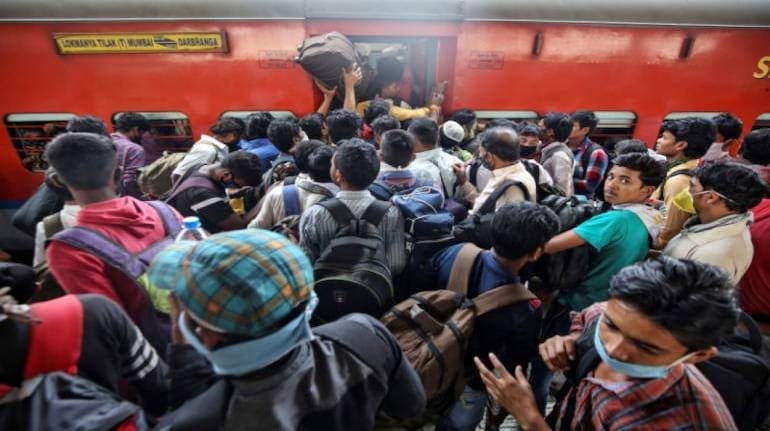



Team 101Reporters
Nearly 85 percent or 138 of 163 respondents who took part in a survey of resident workers including contractual teachers, farm labourers, factory workers and shop vendors said they did not earn any income during the nationwide lockdown (April 22-May 17).
Of these, 17 percent said they had to sell their assets to generate cash while 22 percent said they had to borrow money; As many as 70 percent workers have not received any cash transfer support from the state or central governments, the survey, conducted in Bihar, found.
This is significant in light of the Rs 1,000-per person cash transfers that the Nitish Kumar-led Bihar government has made to the state’s migrant workers stranded across the country due to the lockdown imposed to check the spread of COVID-19. The highly infectious disease had claimed 4,349 lives and affected more than 150,000 people in India as on May 26. The lockdown, introduced at a day’s notice on March 24 by Prime Minister Narendra Modi, left millions -- migrants and local workers -- unprepared, staring at a weeks-long crisis without adequate cash, food and shelter.
No food ration or cash assistance
Against this backdrop, voice-based media platform Mobile Vaani conducted a survey among workers in Bihar during the second (April 22 - May 5) and third (May 7 - 17) phases of the lockdown. A total of 297 respondents took the survey; nearly 77 percent respondents were from Bihar and the rest from Uttar Pradesh and Madhya Pradesh. Not all respondents answered all the survey questions.
“Autos are not plying because of the lockdown, there is no means left for me to earn a single rupee,” auto driver Rajkumar Yadav told Mobile Vaani. “We have not received any food rations or cash assistance from the government, and are somehow managing by borrowing money for food. We will sooner or later reach the verge of starvation.”
Nearly 62 percent respondents said that they are not registered with any welfare board scheme, such as provident fund (PF) or employees state insurance scheme (ESI), the money from which could help them tide through the lockdown. Nearly 22 percent said they had no information about how to access the available social security schemes.
Lockdown conditions were eased after May 5 so that people could resume work; only 8 percent (13 of 163 people) were able to resume work while 70 percent said they had not resumed work, the survey found. Among the latter are all categories of workers, such as self-employed, daily wage labourers, factory workers, street vendors, and so on.
While 44 percent (71 of 163) said they were unable to find work they were doing before the lockdown, 22 percent reported being afraid of stepping outside their homes. Self-employed individuals and factory workers remain most fearful of contracting the infection.
Service sector reports zero business
Those in the service sector reported zero business and severe disruption in their lines of work due to the Covid-19 outbreak. “I do not see any future in my work,” Akhilesh Kumar, a tailor from Ghazipur, Uttar Pradesh, said. “I used to earn Rs 400-500 per day before the lockdown… but this will no longer be possible after the lockdown,” he said, adding that he now depends on ration from the government for survival.
Mobile Vaani surveyors found that many workers hoped to work as farm labourers or find work under MGNREGA or other similar non-agricultural work. Only 8 percent reported any inclination of going to cities for work opportunities.
“The government announced that MGNREGA work will start but work has not started in my village so far,” said Shivnandan Paswaan, a labourer from Patna. “We have now started eating once a day.”
Discover the latest Business News, Sensex, and Nifty updates. Obtain Personal Finance insights, tax queries, and expert opinions on Moneycontrol or download the Moneycontrol App to stay updated!
Find the best of Al News in one place, specially curated for you every weekend.
Stay on top of the latest tech trends and biggest startup news.